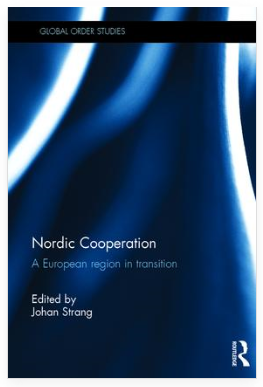Peer Hull Kristensen publish a chapter with Lilja & Moen in Nordic Cooperation. A European region in transition.
Nordic countries as laboratories for transnational learning
The recent crises in global economy and in European integration have caused a considerable revival of interest in the Nordic Welfare Model. However, less attention has been given to the ways in which the nations that form Scandinavia or ‘Norden’ are connected through various forms of inter- and transnational cooperation. With contributions from a team of experts in the field, this volume analyses Nordic cooperation in a European perspective and argues that this special form of transnational cooperation has been crucial in the development of the Nordic Welfare Model. In addition, it also contends that the Nordic model of transnational cooperation is a relevant case study when pondering the present problems of European integration.
The chapter by Kristensen, Lilja and Moen turns the attention to recent economic developments and future possibilities for Nordic cooperation. The authors argue that some of the key reasons for the comparative success of the Nordic countries have been poorly understood by politicians. … How3eveer there are important lessons to be learned from small and medium sized Nordic multinational companies that have successfully capitalized on globalization. They have done so by embracing flexible business constellations where rules and roles are constantly renegotiated. This was made possible by policy decisions in the 1990s that transformed the conditions for working life and paved the way for individualized welfare services. The aim of the chapter is to explicate the puzzle related to the interlinkages between global business operations, working life and the enabling welfare state. In particular, the chapter argues that building on these experiences should be a priority for official Nordic cooperation. Nordic traditions of transnational learning and experience sharing could play an important role in forging a new growth and development regime not only for the Nordic countries, but for Europe at large.
Peer Hull Kristensen, Kari Lilja, Eli Moen and Glenn Morgan: “Nordic countries as laboratories for transnational learning”, pp183-204 in Johan Strang (ed) 2016: Nordic Cooperation. A European region in transition, London: Routledge 2015, ISBN 9781138800649
